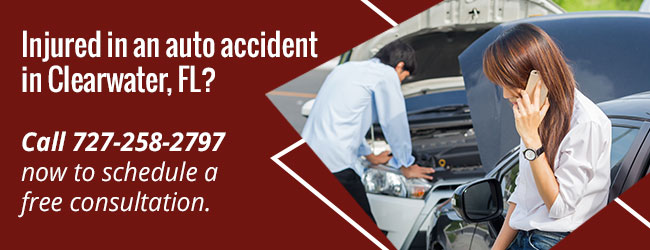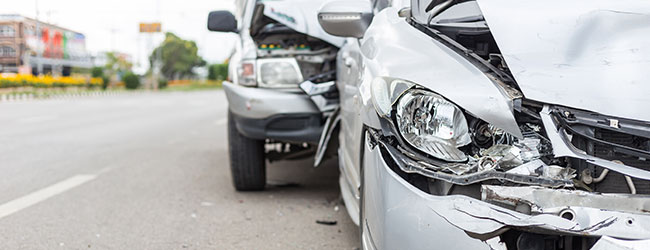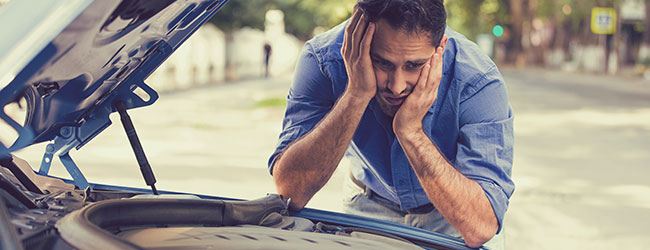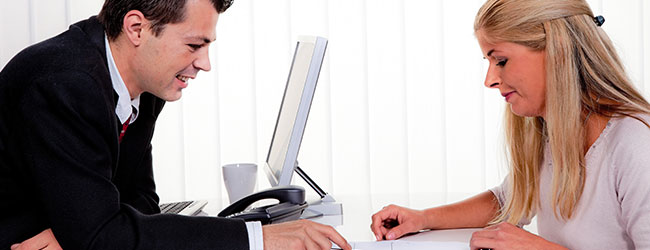How To Determine The Value Of Your Car Accident Claim In Clearwater, FL
Once all the dust settles after their accidents, most of our clients are curious about the potential value of their injury case. It’s not always an easy question to answer, especially when personal injury is involved.
However, determining potential property damage is a little more straightforward, so here we’ll focus on that side of the equation. And the most common piece of property to suffer damage in a car accident is the car itself.
Two ways to calculate property damage
Essentially, property damage calculations boil down to two things: loss of value and repair expenses.
1. Loss of value
Calculating loss of value is actually pretty simple. Just take the fair market value of the car before the collision, and compare it to the fair market value of the vehicle after the collision. The difference between these two figures is how much the car’s value declined due to the crash.
2. Repair expenses
This is the amount of money you’d need in order to return the vehicle to its pre-accident condition. This number is based on charges for parts, labor and towing.
Of course, if your vehicle is totaled – meaning, its market value is effectively nothing – you should be able to expect full market value (immediately before the accident) to compensate you for the loss of value. (Repair expenses in that case would likely be zero, because why would you bother repairing a worthless car?)
How property damage settlements are paid
Repair settlements coming from an insurance company are usually referred to as either first-party or third party. The difference is strictly about which insurance company is cutting you the check – if it’s yours, then it’s a first-party payment. If it’s the other driver’s insurance company, then it’s a third-party payment.
First-party checks are often, but not always, made out to you and to the auto repair facility.
- Getting your car back
Sometimes it is difficult to get your vehicle back following an accident. When this does happen, it’s typically in first-party settlement situations in which you do not own the car free and clear – perhaps you’ve financed it through a loan or a lease, and you’re still making payments. In these cases, the insurance company will often make out the check jointly to you and the bank backing the loan, a process that also requires a signature from the bank.
Before signing the check, the bank will want to confirm that the car has in fact been repaired. You can speed this process along a bit by taking your car to an auto dealership and asking them to verify that the car repair has been made. This verification, along with the receipt from the auto repair facility and photographs of your car, will make it more likely that the bank processes your check quickly.
- Coercion to use preferred vendors
Be wary about using the insurer’s recommended auto body shops. It’s common for these shops to have an agreement with the insurance company to use cut-rate parts and techniques as a way of cutting costs. Of course, that leaves you driving around in a car with a third-rate repair job. Insist on selecting the body shop yourself.
- Know the law
Getting to know your rights is fairly easy, and it can give you a serious advantage when it comes to dealing with insurance companies, repair shops, banks and other parties involved in your claim. A personal injury or accident attorney, such as the Andriotis Law Firm, will often be willing to consult with you for free to help you recover reasonable property damages and other costs incurred due to the accident.
Handling your own auto accident claim
Is it ever a good idea to represent yourself following an auto accident? We certainly don’t recommend it. Seeking the counsel of a qualified auto accident or personal injury attorney is usually wise – at least for an initial free consultation – but if you’re set on going it on your own, here is some friendly advice.
What to do after an auto accident
- Notify your insurance company
After the accident, it’s important to notify your car insurance company ASAP. This notification will start the ball rolling on processing your claim and quickly arriving at a reasonable settlement.
- Get the authorities
Also immediately contact the police. The police report is often required by insurance companies and, due to its objective standpoint on the accident, can be immensely helpful if and when you’re ready to develop a legal case.
- Pictures & witnesses
Document everything you can at the scene of the accident. Take as many photographs as possible, and if there are witnesses nearby, collect their information as well.
- Get a rental car
Find out if your insurance coverage pays for a rental car. You may need one while your vehicle is being repaired, so see if your insurance company’s policies will help you avoid bearing the cost yourself. They may have a preferred rental car company that you will have to use in order to be reimbursed.
- Medical treatment & documenting your injuries
First of all, be aware that anyone in the vehicle – passengers as well as driver – can file a claim for personal injuries sustained during a car accident. Your doctor should give you a full physical exam, with the possible addition of an MRI for head injuries or other tests related to any pre-existing medical problems. Document everything related to injuries, including any lost days of work.
- Settling your claim
This is the stage where you’ll probably want to call in an attorney, if you haven’t done so already. If you plan to continue on your own, you’ll want to have as much textual and photographic evidence as possible of damage to your vehicle and the extent of any physical injuries you’ve suffered. Getting three competitive estimates for vehicle repairs can also help build your case.
A basic rule of thumb for a settlement is to add up all of your costs related to the accident – damages, physical injuries and any indirect costs, such as lost income – and multiply it by four. This figure represents your actual losses plus pain and suffering. Though it’s not always easy to put a number on pain and suffering, quadrupling your financial burden will usually give you a settlement figure most insurance companies can live with.
- Reading a release
A release is your signed statement that absolves other parties – the negligent driver and his or her insurance company – of any liability. In other words, it’s the end. Ensure that the settlement is fair and that all of your direct and indirect expenses – past, current and continuing – are covered.
Keep in mind that if you sign a release without consulting your insurance company first, you may be hit with additional costs. If your policy contains UIM, or Underinsured Motorist, coverage, and you signed a release without insurer approval, you may lose the ability to recover on that portion of your policy.
Hire a Car Accident Attorney in Clearwater
In our system, personal injury or auto accident attorneys are not required when you get in a car accident. You are perfectly free to go through the process on your own. However, when deciding whether to attain a lawyer, consider that nearly all personal injury lawyers have built up a high level of expertise by working claims just like yours, every single day.
At The Andriotis Law Firm, we understand what victims of auto accidents and personal injury cases go through. We’re here, ready to help, and prepared to fight for the justice you deserve every step of the way.
If you’ve been injured in an auto accident in Clearwater, FL, don’t wait. Contact our office today to schedule a free consultation, 727-232-9957, or simply fill out the form.




